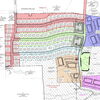Processing Your Payment
Please do not leave this page until complete. This can take a few moments.
- News
-
Editions
-
- Lists
-
Viewpoints
-
Our Events
-
Event Info
- Women's Leadership Forum 2025
- On the Road with Mainebiz in Bethel
- Health Care Forum 2025
- On The Road with Mainebiz in Greenville
- On The Road with Mainebiz in Waterville
- Small Business Forum 2025
- Outstanding Women in Business Reception 2025
- On The Road with Mainebiz in Bath
- 60 Ideas in 60 Minutes Portland 2025
- 40 Under 40 Awards Reception 2025
- On The Road with Mainebiz in Lewiston / Auburn
- 60 Ideas in 60 Minutes Bangor 2025
Award Honorees
- 2025 Business Leaders of the Year
- 2024 Women to Watch Honorees
- 2024 Business Leaders of the Year
- 2023 NextUp: 40 Under 40 Honorees
- 2023 Women to Watch Honorees
- 2023 Business Leaders of the Year
- 2022 NextUp: 40 Under 40 Honorees
- 2022 Women to Watch Honorees
- 2022 Business Leaders of the Year
-
-
Calendar
-
Biz Marketplace
- News
- Editions
- Lists
- Viewpoints
-
Our Events
Event Info
- View all Events
- Women's Leadership Forum 2025
- On the Road with Mainebiz in Bethel
- Health Care Forum 2025
- On The Road with Mainebiz in Greenville
- On The Road with Mainebiz in Waterville
- + More
Award Honorees
- 2025 Business Leaders of the Year
- 2024 Women to Watch Honorees
- 2024 Business Leaders of the Year
- 2023 NextUp: 40 Under 40 Honorees
- 2023 Women to Watch Honorees
- 2023 Business Leaders of the Year
- + More
- 2022 NextUp: 40 Under 40 Honorees
- 2022 Women to Watch Honorees
- 2022 Business Leaders of the Year
- Nomination Forms
- Calendar
- Biz Marketplace
Belfast council wants state to get moving on Nordic Aquafarms application
 COURTESY / NORDIC AQUAFARMS INC.
An interior view of Nordic Aquafarms’ land-based aquaculture facility in Frederikstad, Norway. The Belfast City Council is asking the state Board of Environmental Protection to issue its findings on the proposal by May 7.
COURTESY / NORDIC AQUAFARMS INC.
An interior view of Nordic Aquafarms’ land-based aquaculture facility in Frederikstad, Norway. The Belfast City Council is asking the state Board of Environmental Protection to issue its findings on the proposal by May 7.
The Belfast City Council is asking a state board to get on with its review of a land-based salmon farm proposal by videoconference, rather than wait until it can meet in person.
The Maine Department of Environmental Protection’s Board of Environmental Protection was tentatively scheduled to hold its final deliberations and issue findings May 7 on an application by Nordic Aquafarms to develop a land-based salmon aquaculture facility. It would be sited on a 56-acre parcel along the northwesterly side of U.S. Route 1, near the lower reservoir of the Little River.
But at its April 21 meeting, held by videoconference, the council learned that the board was considering waiting until it could meet in person.
Council members said they were concerned about a delay in the board’s deliberations because the pandemic made it impossible to predict when the board might be able to safely convene. Nordic’s application has been winding its way through the permit process for over two years.
The council agreed to send a letter to the board that expresses the city’s gratitude for the board’s help in reviewing the application, and indicates that the board’s input is essential to city planning board’s upcoming review of the application. The letter was also to ask the board to release its findings as originally scheduled on May 7.
“They have a lot of technical expertise that we don’t have,” Councilor Mike Hurley said. “We’ll either rely on their expertise or we‘ve got to hire experts.”
“We have seen delay after delay after delay,” said Councilor Neal Harkness. “We’re hoping to see this move forward. We’re going to be coming out of this virus situation in a depression in this country. The possibility that we could get economic development moving sooner rather than later — that’s imperative.”
“Two-and-a-half years is enough time for many things — that includes a proposed fish farm,” said Mayor Eric Sanders. The operation, he added, could be an “economic lever that would help the city of Belfast, now and in the next 10, 20, 30 years.”
The city planning board's review of Nordic’s application will resume in May, Wayne Marshall, director of code and planning, told the council. He noted that the Board of Environmental Protection’s input would be useful for the planning board as it considers topics related to the application such as natural resource protection, wetland impact and discharge into the bay.
After hearings held in March, the Maine Department of Marine Resources determined that dredging and construction of intake and discharge pipes, related to Nordic’s project, were feasible from the standpoint of fishing operations, contingent on certain recommendations to minimize impacts.
The department sent its comments in a memorandum dated April 7 to the Maine Department of Environmental Protection’s Bureau of Land and Water Quality Control.
The department said that local fishermen and a shellfish aquaculture operator were concerned about potential impacts pertaining to construction activities and the haul route of the dredging barge, about discharge from the pipes, and about potential reduction in landings due to physical and biochemical changes of the marine environment.
The department recommended the use of a closed bucket dredge and turbidity curtains around the barge and excavation site. It encouraged marking the location of the pipelines for navigational safety. And it asked Nordic to have its construction contractor communicate its construction plans with the department and with the local lobster zone council.
In a decision dated April 3, the Board of Environmental Protection denied a request by opponents of the project to reopen the proceedings or dismiss Nordic’s application.
The permitting process has affected Nordic’s original timeline. In 2018, Nordic projected that, pending approvals, initial construction could begin in the summer of 2019.
Nordic proposes to develop the project in two phases over five or more years. Total production capacity at build-out is estimated to be 72.7 million pounds of salmon per year.
Mainebiz web partners
Now that the world better understands the risks of viruses and diseases, this giant fish factory should slowed down and require full environmental and disease assessments. Massive monocultures where fish spend their entire lives swimming in circles and never see the light of day, are breeding grounds for the most resistant diseases which often find their way into wild systems. Diseases found at salmon factories include amoebic gill disease, poxvirus, pancreas disease, bacterial kidney disease, cardiomyopathy syndrome and pasteurella skyensis, and the list goes on. Restoring our fragile and recovering, previously highly productive ecosystems of the Penobscot Bay make more sense given the planetary crisis we face. Instead of transitioning Belfast from the "Chicken Capital" to the "Caged fish Capital" it could be a leader in restoration, starting with eliminating the blockage to fish passage on every river entering Belfast Bay. In an expose at Scotlands fish farms, inspectors highlighted widespread problems with sea lice infestations, saying that sampled fish had “severe lice damage to their heads” and a “high lice burden”. They also found “no eyes”, “gross haemorrhaging”, “deformed hearts”, “enlarged spleens”, “anorexia”, “necrotic” gills and “yellow pseudo faeces”. Belfast can do better.










5 Comments